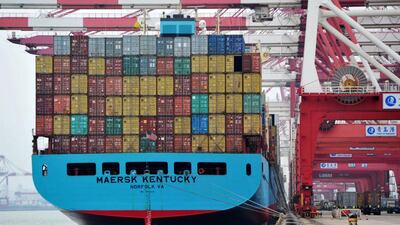After the roller coaster in oil prices this year and the summer volatility over Brexit, the gradual stabilisation of China’s economy has been relatively unnoticed.
This was confirmed last week with the release of third-quarter GDP data that showed the Chinese economy expanding by 6.7 per cent year-on-year, the same as the first and second quarters, which is also consistent with the government’s projected 6.5 to 7 per cent growth target for the whole of this year.
On various occasions over the past two years, the financial markets have been concerned about a hard landing for the Chinese economy that would affect growth in the rest of the world. However, so far at least this has been a dog that has not yet barked.
As the second largest economy in the world, China has obvious relevance with regards to the prospects for the global economic recovery.
China accounts for half the US trade deficit and China is the biggest official holder of US Treasuries. It is also the world’s biggest commodity importer and the slowdown in the Chinese economy in recent years has contributed considerably to the slump in commodity prices.
This clearly has significance for the UAE, as China is its second largest trade partner. The fact that some commodity prices have recovered, including base metals and oil, owes a lot to Chinese demand holding up, with China’s oil imports currently running at record levels.
The latest economic forecasts from the IMF envision a soft landing for the Chinese economy as it makes the transition away from an investment-led and export-led growth model to one based more on consumption.
Not only is it the Chinese economy that impacts on the rest of the world, but the actions of its policymakers are also of increasing significance, having spillover effects across financial markets.
Chief among these are what happens to the Chinese currency, which can have a direct impact in terms of determining whether deflationary price pressures in China are exported to its trading partners.
Since the inclusion of the yuan into the IMF’s SDR basket on October 1, the Chinese authorities have allowed for renewed slippage in the yuan against the dollar to promote the country’s growth strategy. This puts downward pressure on other Asian currencies and contributes to the dollar’s broad strength, which is of course a headwind to our own regional growth prospects here in the GCC.
However, while the recent economic picture might appear surprisingly benign, there is still a widespread fear that China’s economic growth is still too dependent on investment fuelled by fiscal spending and credit growth.
China’s credit problems, especially in the corporate sector, have been well documented, as has its dependence on the banking system and the threat arising from a possible surge in non-performing loans.
Thus the soft landing that the Chinese economy appears to be experiencing might only be a false dawn, still being artificially boosted by ongoing fiscal and credit growth, and leaving it and the rest of the world even more dangerously exposed when deleveraging does actually begin.
The latest money supply numbers show that money supply is at a record high for September, and total social debt is estimated to be about 240 per cent of GDP.
The official fiscal deficit is 3 per cent of GDP, but the IMF includes an estimate for what it calls the “augmented” fiscal deficit, which is closer to 10 per cent, with the risk being that it is even higher than this.
While there is one school of thought that China’s fast credit growth reflects high and stable domestic savings that are channelled into investment, which in turn generates growth and profits, another one with significant historical precedent in other parts of the world is that credit booms are often followed by financial busts.
So the recent steady growth data should not hide the fact that China is still facing a critical task of rebalancing, even after several years of slowdown.
There is still overcapacity in key sectors such as real estate, and the business environment is becoming more and more challenging.
The old engines of growth are shutting down, such as exports and investment, although consumption is for the time being holding up and employment is relatively resilient.
Credit and expansionary fiscal policy appear to have kept the economy afloat in 2016, but the risks are still towards weaker growth as leverage is let out of the system in 2017, which could unleash a more severe downturn.
Tim Fox is the chief economist and head of research at Emirates NBD.
business@thenational.ae
Follow The National's Business section on Twitter


